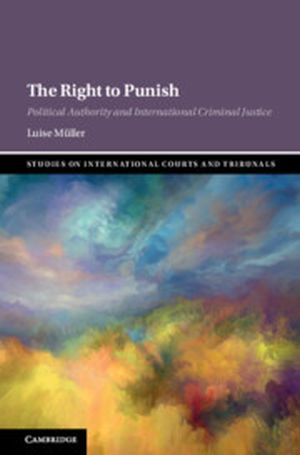
What gives international courts the authority to punish individuals for international crimes? Through the lens of political philosophy, Luise Müller provides an original perspective on the justification of the authority of international criminal courts and tribunals. She argues that institutions of international criminal justice are permitted to pierce the sovereignty of states in order to punish high-profile politicians for genocide, crimes against humanity, war crimes, and other mass human rights violations. Their right to punish is justified by virtue of their function to deter mass violations of fundamental human rights. However, to legitimately exercise that right, international criminal justice institutions must fulfil two conditions: first, they must conduct criminal trials with the highest level of fairness; second, they must treat those that are subject to their authority as equals. This last condition yields the surprising result that such institutions must include procedures of democratic decision-making and democratic accountability.